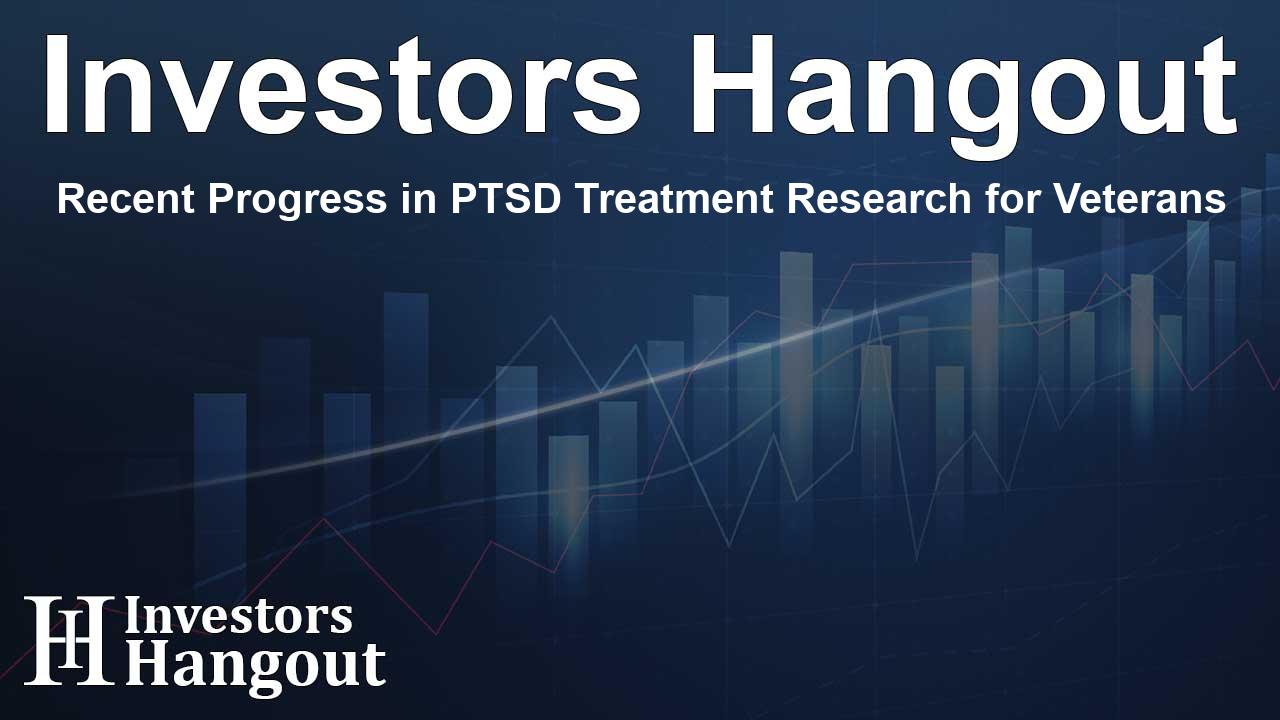Recent Progress in PTSD Treatment Research for Veterans

Understanding the New Cannabis Trial for Veterans
After overcoming numerous regulatory challenges, a significant advancement has occurred in the field of medical research aimed at addressing post-traumatic stress disorder (PTSD) among veterans. The U.S. Food and Drug Administration (FDA) has recently given the green light for Phase 2 of a clinical trial that will explore the effectiveness of smoked medical cannabis in mitigating PTSD symptoms for military veterans.
This pivotal study is financed through Michigan's Veteran Marijuana Research Grant Program, which is revealing the potential of cannabis to bring relief to those suffering from PTSD. As reported in multiple sources, the implications of this study could be transformative for the healthcare landscape regarding treatment options available to veterans.
Details of the Clinical Trial
The trial is being led by the Multidisciplinary Association for Psychedelic Studies (MAPS) and is set to include 320 veterans who have been diagnosed with moderate to severe cases of PTSD. This randomized, placebo-controlled investigation will allow participants to self-adjust their doses of high-THC cannabis flower or a placebo, closely mimicking real-world consumption patterns.
MAPS is determined to assess the comprehensive benefits and potential risks associated with inhaled cannabis as a treatment for PTSD. The outcomes of this study may provide essential evidence and insights into how cannabis can be integrated into treatment protocols for veterans facing PTSD.
The Journey to Approval
The FDA's approval was not easily attained, as the process was hindered by several partial clinical holds that delayed the study's progress. In response to the last hold, MAPS filed a Formal Dispute Resolution Request (FDRR) to address various concerns held by the FDA, such as THC dosage methods, the efficacy of smoking as a delivery system, and the challenge of including cannabis-naïve participants in the trial.
In a statement, MAPS expressed optimism, stating, "After three years of negotiations with the FDA, this decision opens the door to future research into cannabis as a medical treatment, offering hope to millions."
The Role of Funding in Research
The financial backing for this trial, sourced from tax revenue generated from legal cannabis sales in Michigan, represents a growing trend of states investing marijuana tax income into medical research. In a notable commitment, Michigan allocated $13 million in 2021 to MAPS's efforts, along with additional funds for various cannabis-centered research projects.
Rick Doblin, the founder and president of MAPS, emphasized the urgent need for effective treatments for veterans suffering from PTSD, stating, "Veterans are in dire need of treatments that can ease their challenging symptoms of PTSD. This study will generate data that doctors, like myself, can use to develop treatment plans to help people manage their PTSD symptoms."
Significance of the Study
The significance of this clinical trial extends beyond just the participants; it opens new avenues in treatment methodologies for veterans. With an increasing number of states legalizing cannabis for medical purposes, studies like this one could pave the way for broader acceptance and understanding of medical cannabis's role in mental health care.
As the conversation around cannabis evolves, more research will be necessary to gather robust data and provide clear guidelines for practitioners. The hope is that trials like this one will lead to broader regulations and norms around the use of cannabis in clinical settings.
Future Implications for Veteran Health
The results from this clinical trial may not only guide treatment options for veterans but also influence public policy regarding medical cannabis. As this study progresses, it is essential for stakeholders across the healthcare system to remain engaged and support ongoing research efforts. Engaging with the veteran community will be crucial in tailoring findings to meet their needs effectively.
Frequently Asked Questions
What is the purpose of the cannabis trial for veterans?
The trial aims to determine the efficacy of smoked medical cannabis in treating PTSD symptoms in veterans, providing insights into potential therapeutic benefits.
Who is involved in conducting this trial?
The trial is being conducted by the Multidisciplinary Association for Psychedelic Studies (MAPS) with funding from Michigan's Veteran Marijuana Research Grant Program.
How many veterans will participate in the study?
A total of 320 veterans diagnosed with moderate to severe PTSD will participate in the trial.
How will the trial participants use cannabis during the study?
Participants will self-titrate doses of high-THC cannabis flower or receive a placebo, emulating real-world usage patterns.
What are the potential implications of this research?
The outcomes could significantly influence treatment options for veterans with PTSD and could reshape public policy surrounding medical cannabis use.
About Investors Hangout
Investors Hangout is a leading online stock forum for financial discussion and learning, offering a wide range of free tools and resources. It draws in traders of all levels, who exchange market knowledge, investigate trading tactics, and keep an eye on industry developments in real time. Featuring financial articles, stock message boards, quotes, charts, company profiles, and live news updates. Through cooperative learning and a wealth of informational resources, it helps users from novices creating their first portfolios to experts honing their techniques. Join Investors Hangout today: https://investorshangout.com/
Disclaimer: The content of this article is solely for general informational purposes only; it does not represent legal, financial, or investment advice. Investors Hangout does not offer financial advice; the author is not a licensed financial advisor. Consult a qualified advisor before making any financial or investment decisions based on this article. The author's interpretation of publicly available data shapes the opinions presented here; as a result, they should not be taken as advice to purchase, sell, or hold any securities mentioned or any other investments. The author does not guarantee the accuracy, completeness, or timeliness of any material, providing it "as is." Information and market conditions may change; past performance is not indicative of future outcomes. If any of the material offered here is inaccurate, please contact us for corrections.